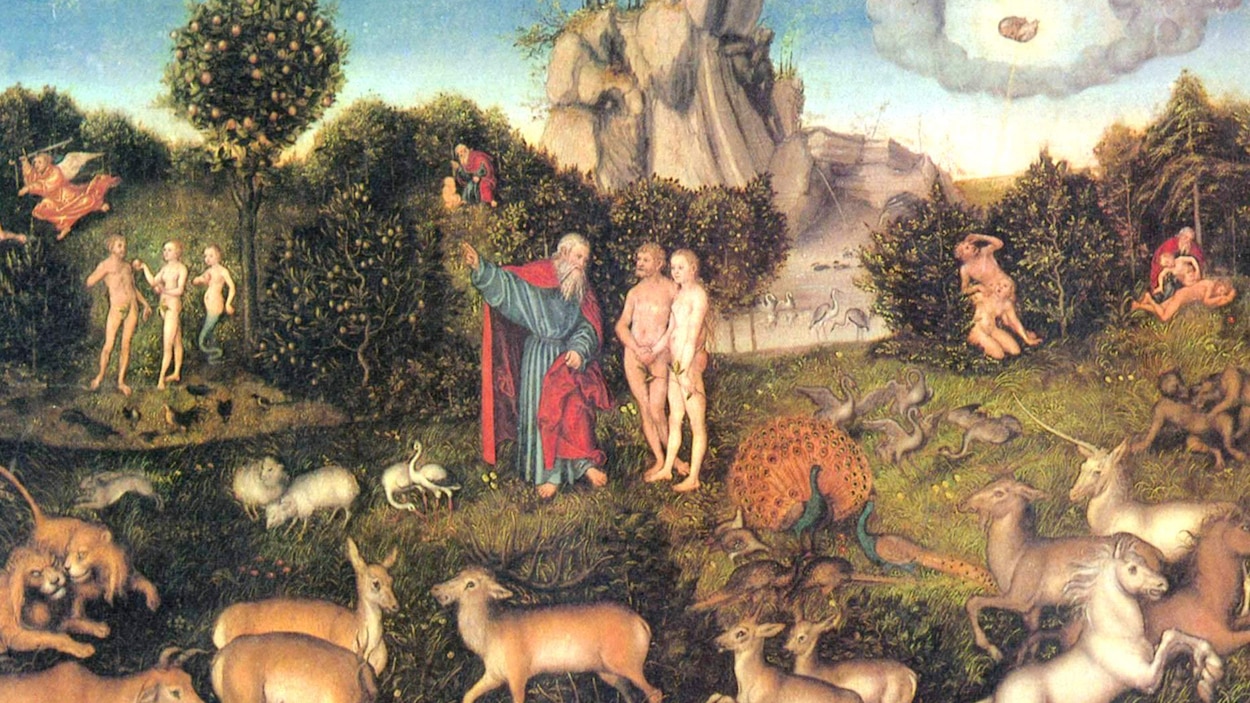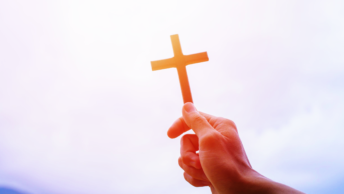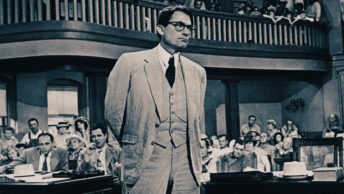Some things never really change, even though their nomenclature often endures frequent variants like a virus. Some viruses never go away. The most lethal are the moral and intellectual infections that masquerade under many iterations. With apologies to the Bard of Avon and his rose analogy, tyranny by any other name is just as evil. In high school, I remember a selection from Poor Richard’s Almanac, Benjamin Franklin’s compendium of wise and pithy sayings. Vice knowns she is ugly, so she puts on a mask. I think that saying is extremely apropos for today’s cultural and political battles.
Revolutionaries have used many different terms to characterize the philosophical underpinnings of what St. Augustine called the City of Man in the 5th century, whose Biblical roots trace back to the poisoned fruit of Eden. Since then, its advocates have employed virtually every ism in the book, from Illuminism and Socialism to Communism and Progressivism. Emily Finley, a Research Fellow at Princeton University, entered the fray with the November, 2022 publication of her The Ideology of Democratism.
Finley’s contribution to the debate is a heterodox synthetism of all the ideas that have contributed to the 21st century’s political environment. Her book bristles and groans with shelves of ideas and explanations that can easily overtax the mind. I used at least one yellow marker to underline her key points over the course of reading this very slim volume. Despite its brevity, Democratism collects all the convergent ideas and players together, creating a profound gestalt.
However, Democratism is a slippery idea that cannot easily be described. The Free Dictionary defines it as a doctrine of or belief in social equality or the right of all people to participate equally in politics. Finley describes Democratism as a blend of modern abstract rationalism and romantic dreaming…with a paradoxical mixture which accounts for its predominant moral-intellectual dynamic. On the surface, this all sounds like a benign if not laudable pursuit. As in most abstractions, one needs to peel off the layers to find its reality. Often the result is far different than any scholarly definition.
Finley deftly demonstrates that Democratism constitutes an entirely new Weltanschuung that has established a strong foothold, not just in America, but also across Western Europe. She points out that despite their abstractions, in reality it is a powerful reinterpretation of democracy that has evolved into its polar opposite. When put into practice, Democratism removes its mask, exposing a tyranny that has little regard for the popular will.
To explain how we have arrived at this time and place in history, Finley traces the conceptual and intellectual history of Democratism. I was a little disappointed that she did not spend more time explaining the Church’s first important heresy. Gnosticism was distinguished by the conviction that matter is evil and that emancipation comes through the gnosis, a Greek word meaning literally knowledge…a special kind of knowledge only the Gnostics possessed. It is, in my opinion, the fountainhead of all the isms that have plagued the modern world since the Fall of Man. To me, it is the ideological design of what has developed into to the blatant abuse of authentic democracy.
To give flesh and bone to this abstraction, Finley traces its etymological usage back to Edmund Burke, who in his Reflections on the Revolution in France, derided the democratists who,…treat the humbler part of the community with great contempt, whilst…they pretend to make them the depositories of all power. The author then cites political theorist James Burnam who called Democratism an ideology. Austrian philosopher Erik Von Kuehnelt-Leddihn saw it simply as a democratic way of life, though he qualified his definition when he emphasized it had an inherent ochlocratic or ‘mob rule’ tendency.
From there, Finley expertly explored the thinking of several historical contributors, beginning with the philosophy of Jean Jacques Rousseau, followed by the enlightened democracy of presidents Thomas Jefferson, Woodrow Wilson and George W. Bush, as well as modern philosophers Jurgen Habermas and John Rawls. According to Finley, Democratism’s most telling attribute is its hidden elitism… that they possess special knowledge and the true way to conduct politics and can speak authoritatively about how to transform society…even if society does not want to be transformed. This is the mark of Gnosticism, the heresy that will not go away like a pandemic virus.
Like Rousseau, Democratists and their successors in the 21st century believe in the falsehood that man’s human nature is good and almost angelic. Despite this, the Democratist elite believe ordinary people are not educated or smart enough to know what is good for them. Only Democratists have this special knowledge that will take them to the promise land of peace and material prosperity on earth, a kind of secular heaven that does not require any allegiance to a higher power than its leaders. This echoed a speech in Buffalo where President Bill Clinton told the crowd that the government would make better use of their money than they would.
To guide them, the neo-Gnostics rely on Rousseau general will, a rather amorphous concept that almost defies definition. It is whatever is in the mind of the elite. One thing is certain, any person who rejects the elite’s general will…poses a threat to communal unity and must be stopped. Such dissidents cannot be moral persons and should be considered traitors or in today’s parlance terrorists and can even be put to death. As Nicolai Lenin once said, one must break a few eggs to make an omelet. I will wager Democratists are very handy in the kitchen.
According to Finley’s analysis, Rousseau’s Social Contract is implied in the general will. This means that most people must surrender many of their individual rights for the good of the whole of society. It is always assumed that the people’s best interests are aligned with the values of Democratist elite. The Social Contract is essentially their blueprint for a new society. With regard to Woodrow Wilson’s secular theology, Finley reminds her readers that his idealism prompted him to lead America into a World War…to make the world safe for democracy…in the name of noble-sounding ideals… This was despite its tremendous violence. For Finley this is a central idea of democratism.
To make Democratism the ruling philosophy of intellectual and moral conformity for future generations their education toward must start early. The elite teachers always assumed that the child or the student is naturally good but the elite is needed to develop his spontaneous goodness. While the people always follow their own will as Rousseau assumed, it will always be the Democratists who have instructed them on what to believe. Does this not sound like the major approach in most of America’s classrooms? *
On its surface, even an honest thinker with a moderate understanding of American history might miss the complete transformation of what most people understand as democracy. The chief proponents of Democratism, such as the Biden administration and Democratic party have falsely identified former president Donald Trump’s populism as an attack on American Democracy. Americans now live in a country where every day they are told that their rights are under assault from the likes of Trump whose four tempestuous years in office culminated in the insurrection of January 6th. As a result, in their playbook, his bid for a third presidential nomination is another assault on the basic freedoms of American Democracy. Finley exposes this falsehood by reminding Americans that such anti-populist sentiments reject the popular will of several million voters over the course of the last two presidential elections.
Accompanying these warnings were new terms and words, all with deeper meaning, such as Woke, Cancel Culture and the Great Reset. The ideology of Democratism has several tenets and beliefs that comprise a veritable religious creed. The salient features of this new American creed focus on the power of Government and its adjutant, a deified Science. Some of their cultural beliefs include abortion up to and even after accidental birth. Despite President Biden’s pretense of being a devout Catholic, abortion has become his administration’s sacred ministry.
Secondly, thanks to their bogus racial ideas, such as Critical Racial Theory, educators have falsely painted the United States as having been systemically racist since 1619. Diversity, another of their many undefinable abstractions, demands that all Americans unequivocally accept and promote the perverse ideas attendant to gays, lesbians, the transgendered and various other flavors of one’s preferred sexuality. Other silly ideas, such as men can menstruate and give birth despite their assigned gender at birth, are praised and defended in the mainstream media. Their out-of-focus lens grows wider each day. Bestiality seems to be the only vice not wearing a Democratist mask…so far. American leaders and cultural engineers, not to mention 95% of our educational system from kindergarten to graduate school, have been enlisted in the conspiracy to silence any opposing views to their sacred creed.
To oppose, criticize or even question any of these ideas can result in a loss of job, personal and social humiliation and isolation from the general culture. Or as in the case of a group of parents in northern Virgina, being labeled terrorists, by schools boards and subjected to FBI bullying. In some cases, one could be incarcerated, such as the case of Mark Houck who was nearly sent to prison for 11 years. His crime? Defending his 12-year-old son from an abortion escort who harassed him while they were peacefully protesting and praying outside an abortion killing center in Tennessee. President Biden threw the full weight of his Justice Department against the Houck family. This included an FBI midnight home invasion that seriously traumatized the family. The first word that comes to mind is Gestapo.
One of the most relevant chapters in her book focused on the thinking of a Catholic philosopher, the late Jaques Maritain. That such a prominent Catholic thinker could be seduced by this secular theology underscores how widespread their perverse thinking had become in the second half of the 20th century. Finley believes that his writings were perhaps even indicative of the Catholic faith being transformed under its influence. Despite the French scholar’s resistance to messianic ideology, the thinking of Rousseau and totalitarian government, Maritain nonetheless entertained visions of earthly paradise of the brotherhood of man under the aegis of democracy… another idea Finely labels as central to Democratist thinking.
Maritain maintained that Christian democracy was the one form of government most in step with human nature and the transcendent moral order. Finley’s analysis found several similarities in his thinking with that of Rousseau, such as his assumptions about human nature. Like Wilson and other progressives, Maritain put his faith in the ability of the democratic political system to solve forever all political and social challenges. Plato was the first thinker to imagine an end to politics in his Republic, which had all the underpinnings of a tyrannical text. He also had some early signs of gnostic thinking, such as a disdain for the human body.
Maritain also distanced himself from the traditional teachings of Sts, Augustine and Thomas Aquinas. Natural inequalities would be compensated by a process of organic redistribution. In calling for the state to ensure a certain material equality among the citizens of the world that would also promote its spiritual well-being, Maritain definitely put himself at the forefront of much of what makes up the Woke plan for America.
The older Christian idea of the state did not envision government as a vehicle for salvation or spiritual improvement. This sounds like the seeds of the Church’s current fascination with Social Justice. Erik Von Kuehnelt-Leddihn was alarmed by the tide of progressive social gospel sweeping America in the twentieth century and transforming Christianity under its influence…especially the use of the word ‘equality’.
Finley writes that Maritain felt that something like the welfare state was natural and inevitable. Like other social democratists, he believed that a spiritual awakening (being woke) of the population can bring about a new age of civilization with democracy at its foundation and in which broad rights and of the human being in his social economic and cultural functions will be recognized.
One final note, though different in many ways, Maritain, John XXIII and Paul VI had some things in common with Karl Marx. According to Finley they believed the broad assumption that through politics the historical dialectic is moving societies inexorably toward spiritual and material fulfillment. Today the Left calls this the right side of history.
Maritain’s fascination for some of the atheist Karl Marx’s ideas would be disheartening by itself but when I read an excerpt from another of my Christmas books, George Weigel’s To Sanctify the World: The Vital Legacy of Vatican II, I found far more cause for concern. Evidently part of the legacy of Vatican II included Maritain’s participation. Pope Paul VI referred to the elderly Frenchman as my maestro or teacher. While Maritain did not have a formal role, Weigel informs the reader that his philosophical exploration of Christian humanism, as well as his writings of democracy, human rights…had all left their mark on the Council’s texts. This in itself is a frightening thought that should alarm all Catholics today.
All of the above should not surprise anyone who has been politically aware these last 35-50 years. America was founded as a Republic or as one might also say a Democratic Republic, the name of one of the first political factions. It was French visitor Alexis de Tocqueville who first rang the alarm that ‘an immense tutelary power’…will rise to watch over an innumerable multitude of men all equal and alike under the pretext of saving them. Emily Finley could not have better summed up better what has become the Ideology of Democratism.
Unfortunately, the Trump phenomenon lacks the moral imagination or experience, necessary to thwart the continuation of Democratism. Perhaps, Florida Ron De Santis, a decent Catholic, will be able to stop this tide of evil. Hopefully, he or whoever becomes the Republican standard-bearer, recognizes that idealism is no way to run a government or rule a country.
*In the WSJ for February 1, 2023, the Trustees for the University of North Carolina have upset the faculty and school administrators with their plans to build a new School of Civic Life and Leadership within the University system. Unlike the rest of the University’s schools, it will be based on the free and open discussion of all ideas on history, literature, religion philosophy and political science. How novel an idea!








